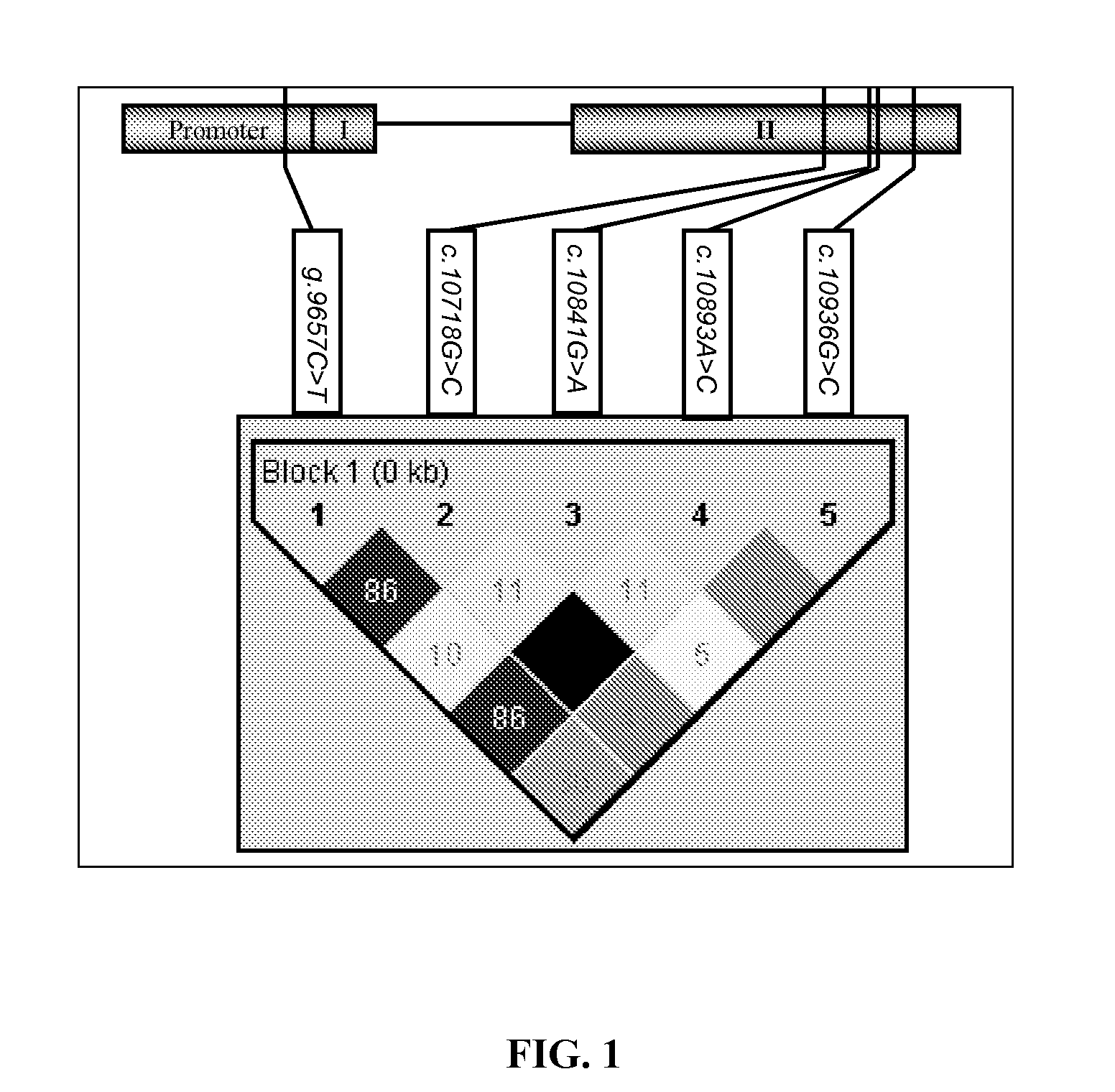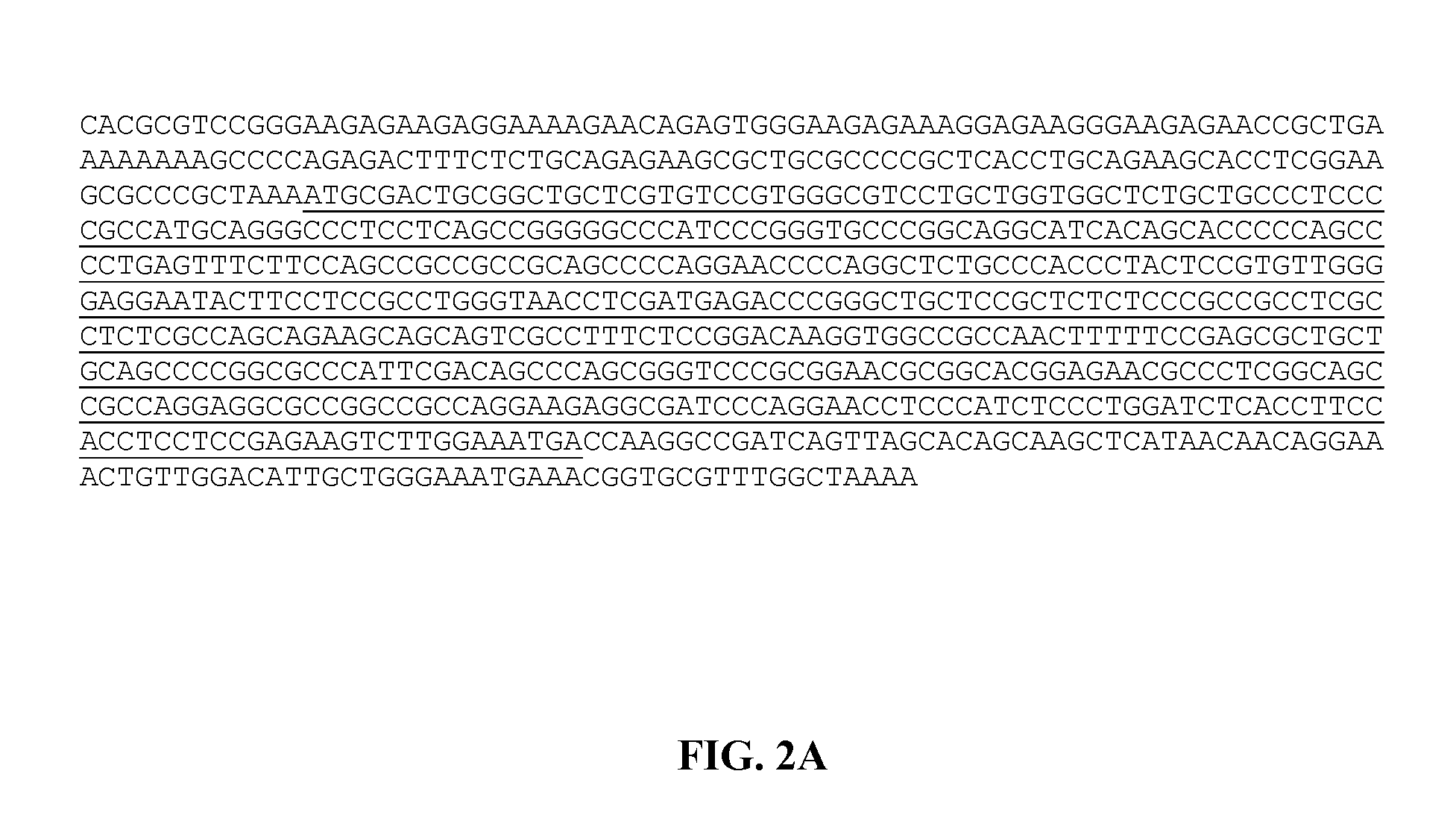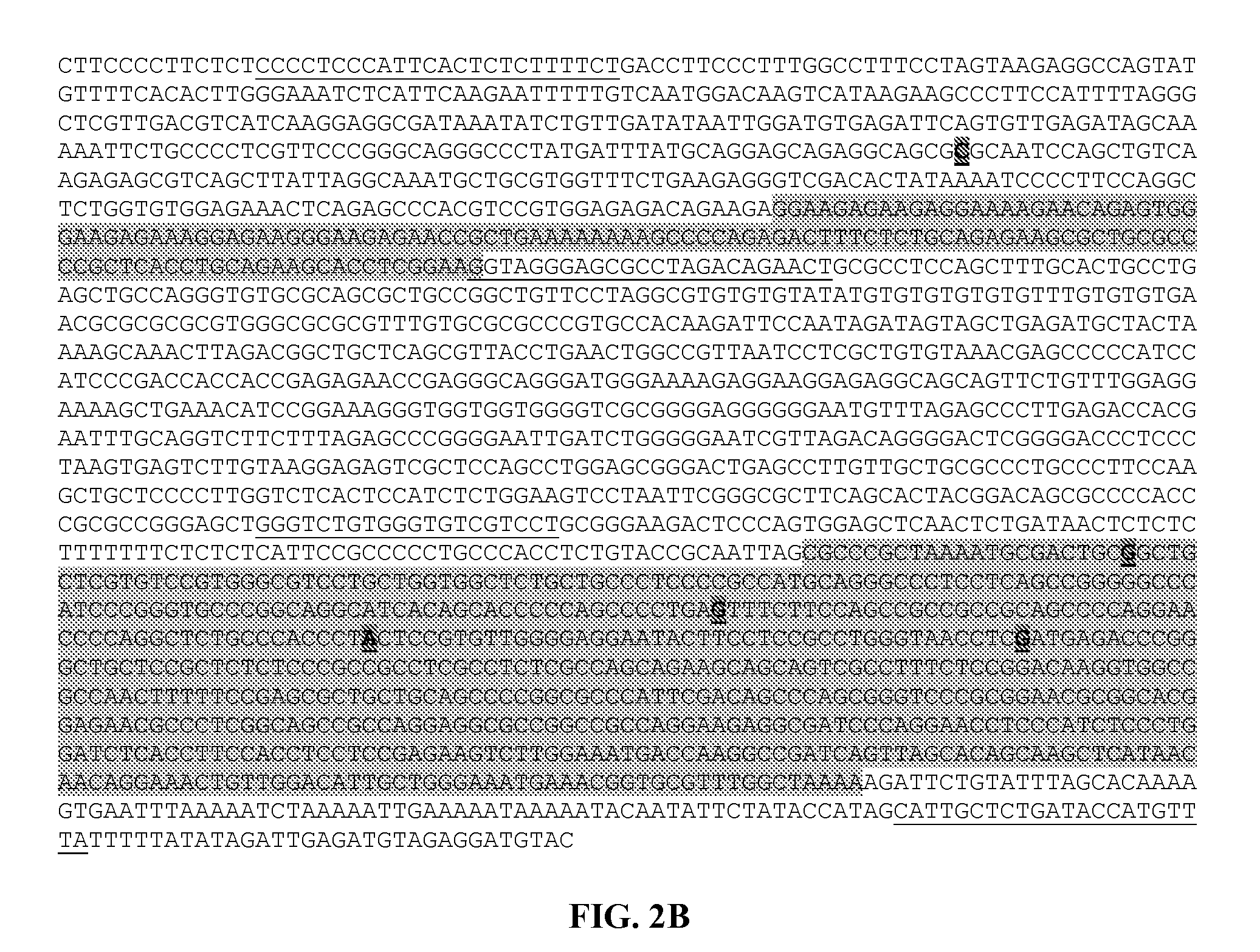Genetic polymorphisms in the corticotropin-releasing hormone (CRH) gene as markers for improving beef marbling score and/or subcutaneous fat depth
a corticotropin-releasing hormone and gene technology, applied in the field of marbling and/or subcutaneous fat depth in beef cattle, can solve the problems of significant political and regulatory resistance of animals and their relatives to the introduction and use of such methodologies, and methodologies are also non-inheritable, so as to improve production efficiency
- Summary
- Abstract
- Description
- Claims
- Application Information
AI Technical Summary
Benefits of technology
Problems solved by technology
Method used
Image
Examples
example 1
[0167]The corticotropin releasing hormone (CRH) gene is mapped on bovine chromosome 14 (BTA14), where more than 30 fat-related quantitative trait loci (QTL) have been reported in dairy and beef cattle. The gene regulates secretion of adrenocortocotrophin hormone, the hypothalamic-pituitary-adrenal axis and multiple hypothalamic functions, therefore, we hypothesize that CRH is a strong candidate gene for beef marbling score (BMS) and subcutaneous fat depth (SFD) in a Wagyu x Limousin F2 population. Two pairs of primers were designed and a total of five single nucleotide polymorphisms (SNPs) were identified, including AAFC03076794.1:g.9657C>T, c.10718G>C, c.10841G>A, c.10893A>C and c.10936G>C. Among these cSNPs, c.10718G>C, c.10841G>A, and c.10936G>C are missense mutations, leading to amino acid changes from arginine to proline, from serine to asparagine and from aspartic acid to histidine, respectively. These five SNPs were genotyped on ˜250 F2 progeny, but four were selected as tagg...
example 2
[0186]FIG. 5 shows a flowchart of the input of data and the output of results from the analysis and correlation of the data pertaining to the breeding, veterinarian histories and performance requirements of a group of animals such as from bovines. The flowchart illustrated in FIG. 7 further indicates the interactive flow of data from the computer-assisted device to a body of students learning the use of the method of the invention and the correlation of such interactive data to present an output as a pie-chart indicating the progress of the class. The flowchart further indicates modifications of the method of the invention in accordance with the information received from the students to advance the teaching process or optimize the method to satisfy the needs of the students.
[0187]FIG. 6 illustrates potential relationships between the data elements to be entered into the system. Unidirectional arrows indicate, for example, that a barn is typically owned by only one farm, whereas a fa...
PUM
| Property | Measurement | Unit |
|---|---|---|
| melting point temperatures | aaaaa | aaaaa |
| temperatures | aaaaa | aaaaa |
| temperature | aaaaa | aaaaa |
Abstract
Description
Claims
Application Information
 Login to View More
Login to View More - R&D
- Intellectual Property
- Life Sciences
- Materials
- Tech Scout
- Unparalleled Data Quality
- Higher Quality Content
- 60% Fewer Hallucinations
Browse by: Latest US Patents, China's latest patents, Technical Efficacy Thesaurus, Application Domain, Technology Topic, Popular Technical Reports.
© 2025 PatSnap. All rights reserved.Legal|Privacy policy|Modern Slavery Act Transparency Statement|Sitemap|About US| Contact US: help@patsnap.com



